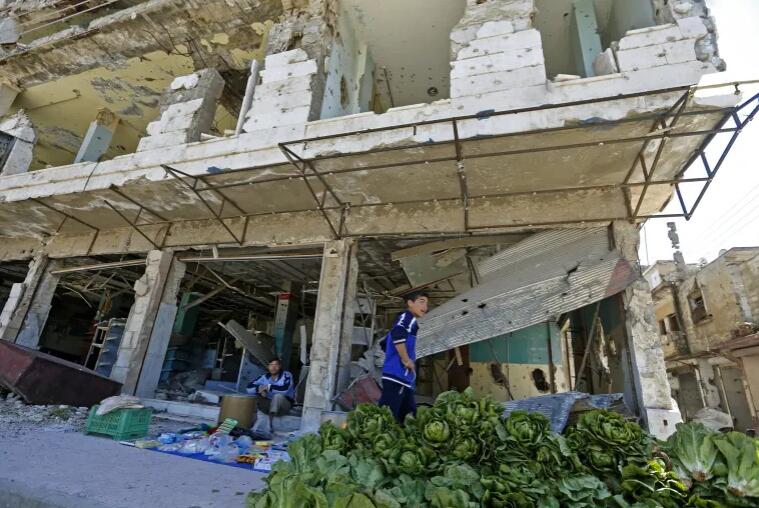Sweden has launched the trial of a former Syrian army officer over his alleged role in war crimes committed in 2012 during the country’s civil war.
The case against Brigadier General Mohammed Hamo, who resides in Sweden, opened on Monday. The trial is one of a very small number thus far against high-ranking Syrian government or military officials, despite efforts in Europe to implement justice against those responsible for human rights abuses during Syria’s 13-year civil war.
Hamo is charged with aiding and abetting abuses of international law. The 65-year-old former military official is accused of participating in operations that “systematically included attacks carried out in violation of the principle of distinction, caution and proportionality”, during his time as brigadier general in the Syrian army between January and July 2012.
Prosecutor Karolina Wieslander read out the charges which were described as constituting “a serious crime”. Hamo contributed, through “advice and action”, to the Syrian army’s “indiscriminate” warfare, according to the case.
The prosecutor also said Hamo worked in the Syrian army’s 11th Division and was vital in making “strategic decisions and [implementing] military operations”.
Hamo’s defence lawyer said her client maintained his innocence, claiming he could not be held liable for the actions “as he had acted in a military context and had to follow orders”.
‘Complete impunity’
According to estimates, nearly half a million people have been killed in the Syrian civil war, which began after the government’s repression of pro-democracy protests spurred unrest between the regime of Bashar al-Assad and the opposition.
Since the war began in 2011, half of the country’s pre-war population of 23 million have fled the country, igniting a wave of migration in the Middle East and Europe.
However, few Syrian officials have been brought to trial.
In November, France issued an international arrest warrant for Assad, accusing him of complicity in crimes against humanity and war crimes over chemical attacks in 2013.
Three other international warrants were also issued for the arrests of Assad’s brother Maher, the de facto chief of the army’s elite 4th Division and two generals.
In March, Swiss prosecutors charged an uncle of Bashir with war crimes and crimes against humanity. However, Rifaat al-Assad – who recently returned to Syria after 37 years in exile – is unlikely to show up for the trial, for which a date has yet to be set.
In January 2022, a German court sentenced former Colonel Anwar Raslan to life in jail for crimes against humanity in connection with “state-sponsored torture”.
Activists claim that the case against Hamo strikes a blow by putting the first military official on the stand over army operations.
“This trial is important because it’s the first time that anyone from the Syrian government or the Syrian army is actually put on trial for the attacks that took place,” claimed Aida Samani of the Stockholm-based Civil Rights Defenders human rights group.
“The attacks in and around Homs and Hama in 2012 resulted in widespread civilian harm and an immense destruction of civilian properties,” Samani added. “The same conduct has been repeated systematically by the Syrian army in other cities across Syria with complete impunity.”
If convicted, the former general faces up to 18 years in jail and even life imprisonment, the activist suggested.
Little is known about Hamo, who in July 2012 defected from the Syrian army and joined those fighting to remove President Bashar al-Assad from power.
Syrian opposition activists say he was involved in the fighting in the once rebel-held neighbourhood of Baba Amr in Homs, Syria’s third-largest city.
![People walk between rubble in the city of Homs, Syria [EPA]](https://www.aljazeera.com/wp-content/uploads/2016/09/67f8e80192134f2db6f7dd25c164d355_18.jpeg?w=770&resize=770%2C434&quality=80)
He lived in central Sweden until he was arrested over his supposed participation in war crimes in 2021, but he was swiftly released due to a lack of evidence.
Several plaintiffs are set to testify at the trial, including Syrians from the cities that were attacked and a British photographer who was injured during one strike.
The trial at the Stockholm District Court is planned to run for 18 days, with the last court session on May 21.

